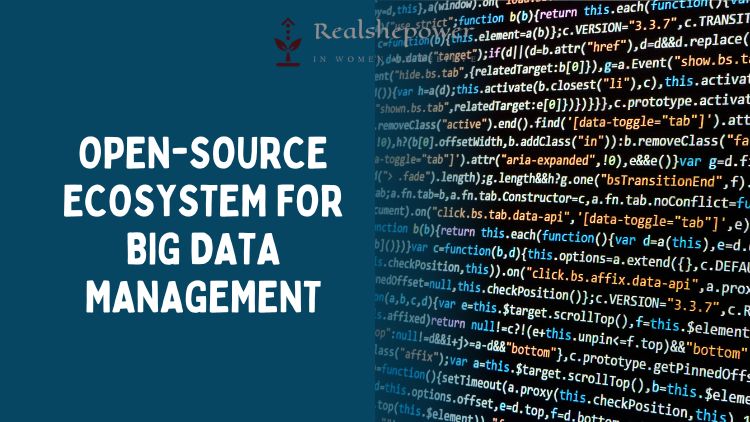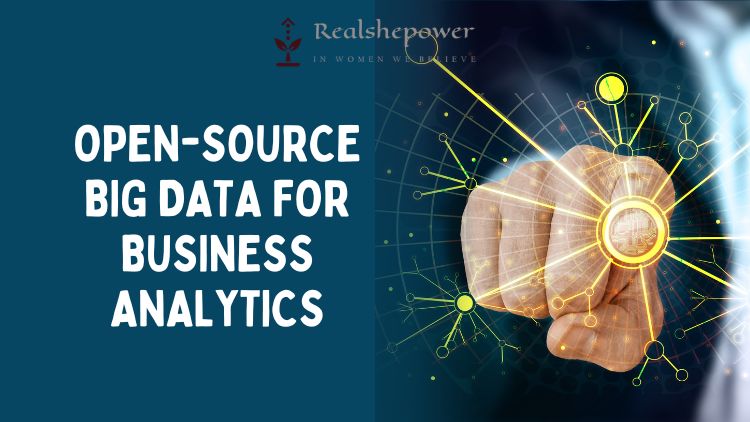Building a Comprehensive Ecosystem of Open-Source Software for Big Data Management


Introduction
The rise of big data has presented numerous challenges for organizations across the globe. Managing and analyzing large amounts of data has become increasingly difficult, and traditional data management tools are no longer sufficient. However, open-source software has emerged as a viable solution for efficient big data management. This article explores the benefits of an Open-Source Software for Big Data Management.
Table of Contents
What is an Ecosystem of Open-Source Software?
An ecosystem of open-source software refers to a collection of software tools that work together seamlessly to provide comprehensive solutions for big data management. These tools are typically designed to be modular, enabling users to choose the components that best fit their needs.
One of the significant benefits of an open-source software ecosystem is the flexibility it provides. Users can choose from a variety of tools for data processing, storage, and analysis, depending on their specific requirements. Additionally, open-source software is highly customizable, enabling users to modify the code to meet their needs.
Open-Source Software for Big Data Management:
Here are some of the key components of an open-source software ecosystem for big data management:
- Hadoop: Hadoop is an open-source software framework that is used for distributed storage and processing of large data sets. It provides a scalable, fault-tolerant platform for running big data applications.
- Spark: Apache Spark is a fast and general-purpose data processing engine that is used for large-scale data processing. It provides an in-memory computing capability that makes it faster than traditional MapReduce-based processing.
- Kafka: Kafka is a distributed streaming platform that is used for building real-time data pipelines and streaming applications. It provides a scalable, fault-tolerant platform for processing high-volume data streams.
- Cassandra: Cassandra is a distributed database management system that is designed to handle large amounts of data across multiple nodes. It provides high availability, scalability, and fault tolerance.
- HBase: HBase is a NoSQL database that is designed for random, real-time read/write access to large datasets. It provides high availability, scalability, and fault tolerance.
- Elasticsearch: Elasticsearch is an open-source search engine that is used for full-text search and analytics. It provides scalable, real-time search and analytics capabilities.
- Flink: Apache Flink is a distributed stream processing engine that is used for building real-time data processing applications. It provides a scalable, fault-tolerant platform for processing high-volume data streams.
These tools can be combined to provide a comprehensive solution for big data management, covering data processing, storage, and analysis. The flexibility and customization provided by open-source software make it an ideal choice for organizations that require a tailored solution for their big data needs.
What are the benefits of an open-source software ecosystem for big data management?
There are several benefits of using an open-source software ecosystem for big data management. These include:
- Cost-effective: Open-source software is typically free, which makes it a cost-effective solution for managing big data.
- Customizable: Open-source software can be customized to meet the specific needs of an organization. This allows organizations to create a tailored solution for their big data needs.
- Scalable: Open-source software is designed to be scalable, which means that it can handle large volumes of data without compromising performance.
- Community-driven: Open-source software is developed by a community of developers who work to identify and fix issues. This results in software that is continually being improved.
Is it difficult to use open-source software for big data management?
While open-source software can be complex, many of the tools available for big data management are designed to be user-friendly. Additionally, there are many resources available online to help users get started with these tools.
Read: Open-Source Tools For Democratizing Big Data

How can an open-source software ecosystem be leveraged for efficient big data management?
By combining the various tools provided by the ecosystem, organizations can create a tailored solution for their big data needs. They can choose the components that best fit their requirements and modify the code to meet their specific needs. This results in a more efficient and cost-effective solution for big data management.
Is open-source software secure for big data management?
Yes, open-source software is secure for big data management. Open-source software is developed by a community of developers who work to identify and fix security issues. Additionally, open-source software is transparent, allowing users to review the code and identify any potential security vulnerabilities.
Conclusion
Big data management is becoming increasingly complex, and traditional tools are no longer sufficient. An open-source software ecosystem provides a comprehensive solution for managing big data efficiently. The flexibility, customization, and scalability provided by open-source software make it an ideal choice for organizations that require a tailored solution for their big data needs. By leveraging the various tools provided by the ecosystem, organizations can create an efficient and cost-effective solution for big data management. With the right set of open-source tools, managing big data can be a hassle-free experience.
References
- Apache Hadoop. (n.d.). Retrieved February 22, 2023, from https://hadoop.apache.org/
- Apache Spark. (n.d.). Retrieved February 22, 2023, from https://spark.apache.org/
- Apache Kafka. (n.d.). Retrieved February 22, 2023, from https://kafka.apache.org/
- Apache Cassandra. (n.d.). Retrieved February 22, 2023, from https://cassandra.apache.org/
- Apache HBase. (n.d.). Retrieved February 22, 2023, from https://hbase.apache.org/
- Elasticsearch. (n.d.). Retrieved February 22, 2023, from https://www.elastic.co/elasticsearch/
- Apache Flink. (n.d.). Retrieved February 22, 2023, from https://flink.apache.org/
Also Read: How to Use Open-Source Big Data Tools for Business Intelligence and Analytics

